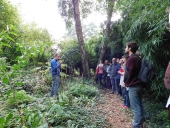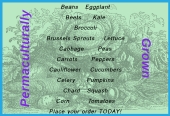




B Henderson: STP FL (10a...was 9A when I started in 2008.)
Those who dismiss climate change look at the 10 degree average low change in 5 years for Central/South FL. Puh!












 1
1




1. my projects








 4
4




There's two types of people in this world. People that agree with me and people that are booger eaters. You're not a booger eater are you?

 1
1





Paul Cereghino- Ecosystem Guild
Maritime Temperate Coniferous Rainforest - Mild Wet Winter, Dry Summer
 1
1




“Enough is as good as a feast"
-Mary Poppins
 3
3





 1
1




Scott Jackson wrote:Interesting article, and I support the call for trials in Permaculture. But the tone of the article and his division into two camps is caustic and ham fisted.
<snip of some good points>
Trial number one: is the author's existential manure well-fermented to the point of fine humus, capable of giving life and renewed abundance, or simply a load of shit?
"...specialization is for insects." - Lazarus Long
Universal Introduction to Permies
How Permies.com works




It's never too late to start! I retired to homestead on the slopes of Mauna Loa, an active volcano. I relate snippets of my endeavor on my blog : www.kaufarmer.blogspot.com
 1
1




Su Ba wrote:You see, my farm supports my family and thus utilizes several different methods of growing. I use whatever actually works, rather than being a disciple of any one particular dogma or other, whether it works or not.





Paul Cereghino- Ecosystem Guild
Maritime Temperate Coniferous Rainforest - Mild Wet Winter, Dry Summer

| I agree. Here's the link: http://stoves2.com |



